Avarekai has many names like Lablab or Hyacinth bean.
Avarekai is an integral part of every household of native Bangalore or Mysore region during every winter. People wait for its arrival. Winter special lima bean is called “Sogadavare” and it has double the aroma of what we get normally throughout the year.
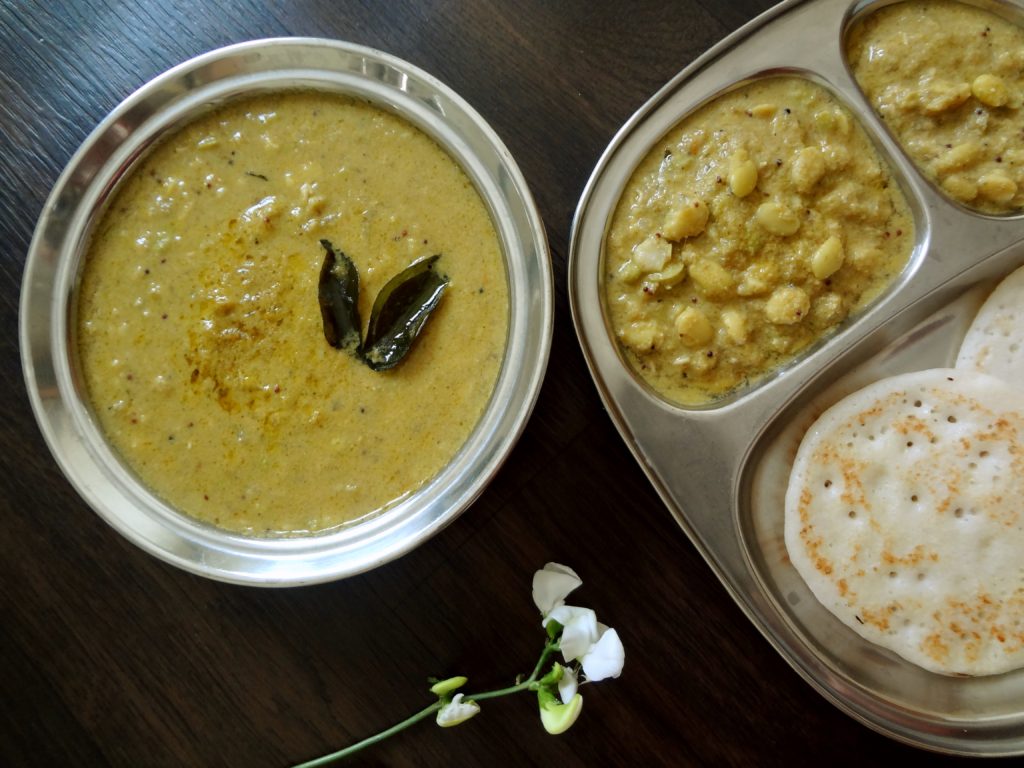
Initially I used to struggle with avarekai recipes and never used to get that authentic touch. Now over the years, I have mastered this authentic, tasty curry and my family started liking it and we do enjoy our share of this traditional curry with soft dosas.
If you are using fresh beans, it is a little time-consuming process. During the season we even get the deskinned ones. If you have frozen beans, curry making is an easy task.
At first, we will see the procedure of de skinning –
-At first take a fresh bean pod, remove outer thick green skin and separate the light yellowish green bean. Collect all the shelled beans, soak it in water for 3 to 4 hours.
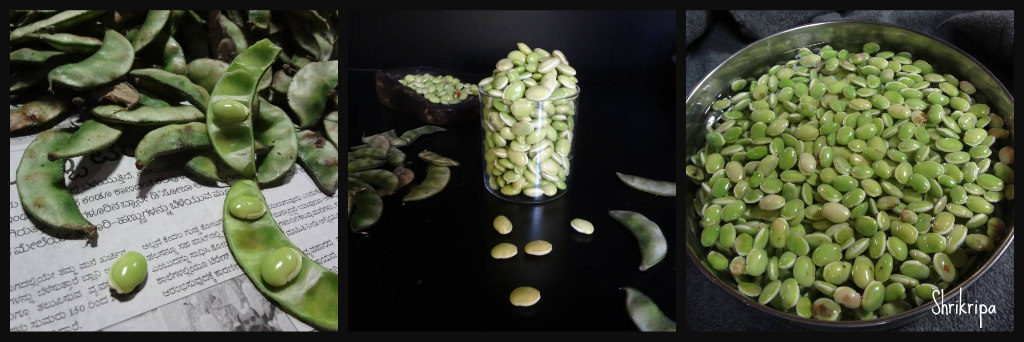
Now starts your time consuming real exercise. Dip your hand in water, remove soaked beans and start deskinning by keeping the bean in between your thumb finger and fore finger and press a little, you will see the transparent outer skin would flip and inner bean will come out. Continue the exercise until it is done and collect deskinned “Hitikida bele” and proceed to make very tasty curry.
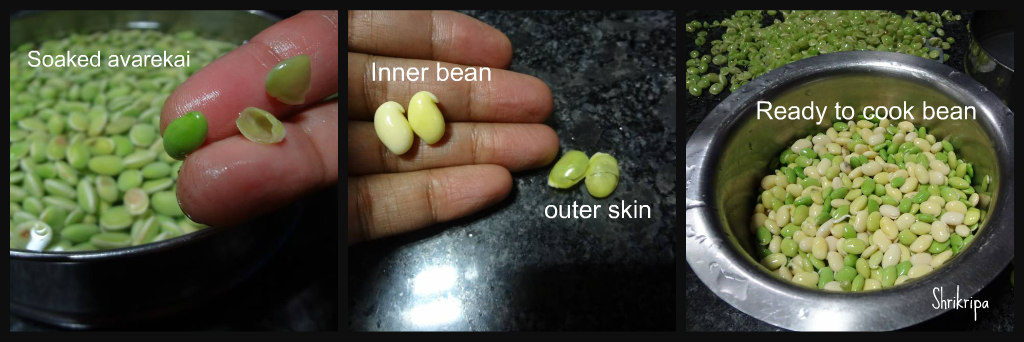
Now we will see the procedure of “Hitikida bele saaru” /Curry
Ingredient-
Deskinned Avarekai – 1 big bowl
Onion – 1 for seasoning
Oil – 3 table spoons
Ghee – 2 tea spoons
Mustard – 1 tea spoon
Curry leaves – 2 springs
Green chillies – 4 (3 for grinding + 1 for seasoning)
Garlic – 8 cloves (4 for grinding + 4 for seasoning)
Coconut – 2 cups
Tamarind – marble size
Coriander seeds – 2 tea spoons
Cumin – ½ tea spoon
Cinnamon – ½ inch
Clove – 2
Ginger – ½ inch piece
Coriander leaves – ½ cup
Method:
-Cook avarekai with required amount of water and salt. You can opt for a cooker or an open vessel. Slow coking gives a better result for this curry.
– Next is the masala preparation. Fry Coriander, cumin, cinnamon, cloves. When coriander becomes light brown, add garlic, ginger, green chillies, coriander leaves,tamarind and coconut and fry until it emits a nice aroma.
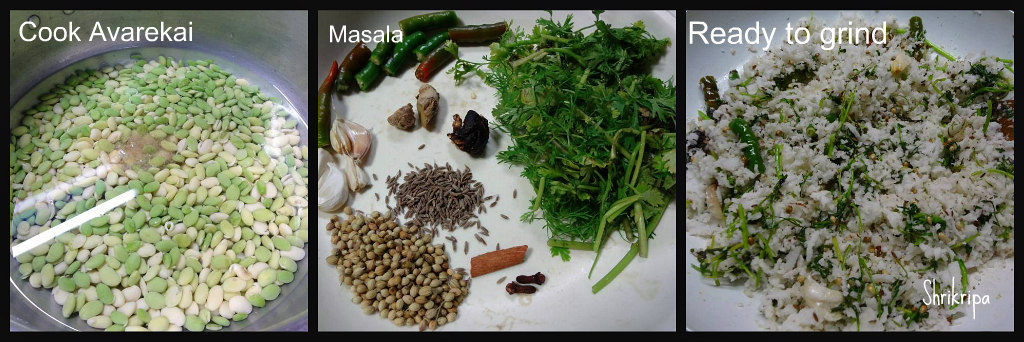
-Switch off the gas, cool the content and grind this in to a smooth paste by adding required amount of water.
-Now do the seasoning, heat oil, splutter mustard, curry leaves, garlic, green chilli, chopped onion and fry until onion becomes light brown.
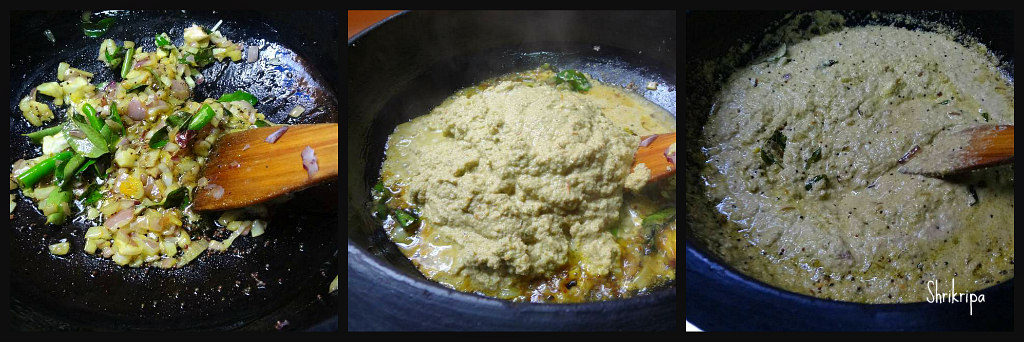
-Add ground masala paste and fry for a couple of minutes. Add cooked avarekai and add enough water.
-At this time, consistency of the curry should be a little watery, as cooking proceeds and after some resting time, it becomes thick and becomes perfect.
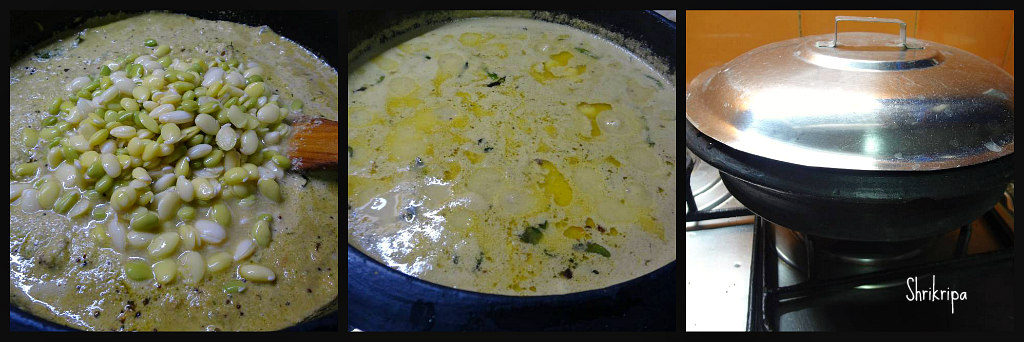
-Boil this mixture until you see a thin creamy layer at the top.
-Switch off and pour 2 tea spoons of ghee, give one mix and close the lid. Rest this for some time, and serve with dosas, chapati’s or plain rice or jeera rice.

Note:
-I usually prepare this curry in the night, and re heat and serve with dosas in the morning.
-In this way, it absorbs all the flavours and sets properly.
